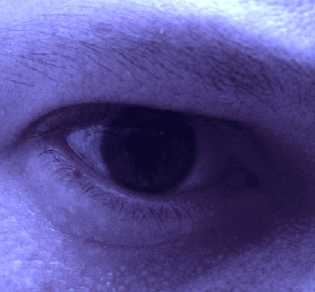From the Richard Dawkins website, credited to the liner notes on Snakes & Arrows:
"I was also thinking, like Richard Dawkins in The God Delusion, about how children are usually imprinted with a particular faith, along with their other early blessings and scars. People who actively choose their faith are vanishingly few; most simply receive it, with their mother's milk, language, and customs. Thinking also of people being shaped by early abuse of one kind or another, I felt a connection with friends who had adopted rescue dogs as puppies, and given them unlimited love, care, and security. If those puppies had been 'damaged' by their earlier treatment--made nervous, timid, or worse--they would always remain that way, no matter how smooth the rest of their life might be. It seemed the same for children."
So, Peart is essentially saying that his lack of faith was imprinted on him along with other early blessings and scars. It is equally valid to say that "People who actively reject faith are vanishingly few; most simply receive it..."
It is also interesting that Peart equates "imprinting a child with a particular faith" as abuse. I can sense the drumbeat of the Canadian collectivists with their departments of Child Services, rounding up children from the homes of the religious, to be raised in communal schools in a faith-free environment.
Perhaps in addition to Dawkins, Peart has been reading Mein Kampf?
Subscribe to:
Post Comments (Atom)

2 comments:
Further, Peart could not get much more arrogant than he has with this comment. Apparently, almost everyone (except of course for Peart and Dawkins) is incapable of using reason to escape from bad childhood experiences.
Peart (along with Dawkins) claim first that man in esse is a product of random natural forces. Then they claim that man's behavior and belief are inescapable products of a few formative years. This doesn't leave much room for reason, does it? These apostles of "science" seem to have much more in common with Calvin than they do with Locke.
I guess my imprinting didn't take since I grew up in an atheist family in Portland, Or where being unchurched is quite common. Even my Randian phase didn't keep my imprinting in place.
Funny thing about grace is that even after a lifetime of atheism and cultural conditioning it didn't prevent me from receiving the gift of faith. But like Peart, I don't have "faith in faith", though I have both faith and reason. Which as Pope John Paul II said in Fides et Ratio:
"Faith and reason are like two wings on which the human spirit rises to the contemplation of truth; and God has placed in the human heart a desire to know the truth—in a word, to know himself—so that, by knowing and loving God, men and women may also come to the fullness of truth about themselves"
Post a Comment